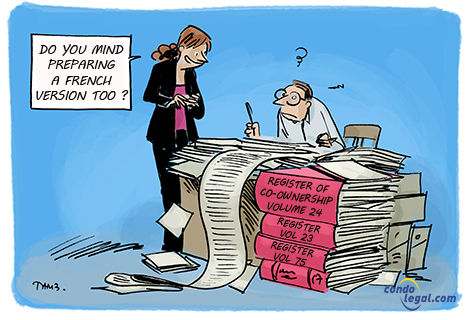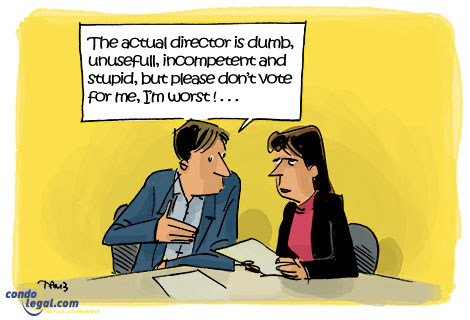21 Articles

The declaration of co-ownership defines the terms and conditions of living together. It applies to the co-owners and, in principle, to the occupants and tenants s of the building. It is up to the Board of Directors, as soon as it becomes aware of it, to ensure that its content is respected, and, if necessary, to give formal notice to the offending co-owner to cease any violation of the declaration of co-ownership. Failure to do so…...

The Civil Code of Quebec, in articles 1098 and 1108, establishes a "double majority" for certain significant decisions of the co-ownership assembly, requiring a consensus in both the number of co-owners and voting rights. Article 1098 of the Civil Code of Quebec deals with major decisions such as changing of use of the immovable, while article 1108 of the Civil Code of Quebec allows for the termination of co-ownership. These provisions ensure thoughtful decision-making, protect the individual rights…...

The declaration of co-ownership is a document that encompasses all the rules specific to a syndicate of co-owners, to ensure the proper functioning of a building and cohesion among its occupants. It also specifies the conditions of use and enjoyment of the common and private portions. Life in co-ownership is not static. It evolves and is subject to changes, which will sooner or later be demanded by the co-owners. This evolution may sometimes lead to amendments…...

.The declaration of co-ownership is a contractual document drawn up by the person who subjects an immovable to the regime of divided co-ownership. Its publication in the Quebec Land Register is a necessity for the existence of a syndicate of co-owners. It includes all the rules ensuring the efficient organization of a co-ownership. Their knowledge by the members of the board of directors and by each of the co-owners is essential to the proper functioning…...

The interpretation of a declaration of co-ownership during a general meeting of the co-owners is sometimes problematic. If, moreover, it has been published before the coming into force of the Civil Code of Québec, in 1994, things can get dicey. In order to avoid potential conflicts between co-owners, caused by an outdated declaration of co-ownership, it is essential to have it rewritten, if it has been published before January 1, 1994. A professional with experience…...

The members of the board of directors play a key role in the co-ownership: they must be involved in the life of the building to ensure the proper management of the co-ownership and the well-being of the co-owners. Usually appointed by the Meeting of the co-owners, the director is a member of the Board of Directors of the syndicate. Its duties are to make decisions on the directions and priorities of the Syndicate. Such Decisions are…...

The director of a co-ownership is called to play a key role in the sound management of the co-ownership and preservation of co-owners' assets. To strengthen and maintain the relationship of trust with them, every director must be fair, honest and loyal toward the Syndicate and the co-owners. The director must also respect ethical standards and the Code of conduct stipulated by the Civil Code of Quebec and the declaration of co-ownership. In case of doubt, directors must act according to the…...

The provisions related to the appointment and replacement of the directors are provided for in the By-laws of the immovable (2nd part of the declaration of co-ownership). In their absence, they are also found in the Civil Code of Quebec (C.C.Q.). The law thus leaves it to the co-owners to establish themselves, in their declaration of co-ownership, the rules that best suit them. However, the appointment of directors generally falls within the competence of the…...

Section 339 of the Civil Code of Quebec establishes as a basic rule that the term of office of a director is one year. The By-law of the immovable usually describe all the terms and conditions specific to the office of director, including the duration of his mandate. Thus, a syndicate of co-owners may, at the end of the By-law of the immovable, extend the duration of the building to more than one year (for example to two or…...

Most co-ownership directors assume this activity free of charge, effectively excluding the collection of any amount of money. But, contrary to popular belief, they can be paid. Usually, the remuneration granted to a director is mainly symbolic and is not similar to a remuneration similar to that paid to a condominium manager. Their remuneration takes various forms: salary, honorariums and attendance fees, just to name a few. This financial compensation, a part of the administrative…...
